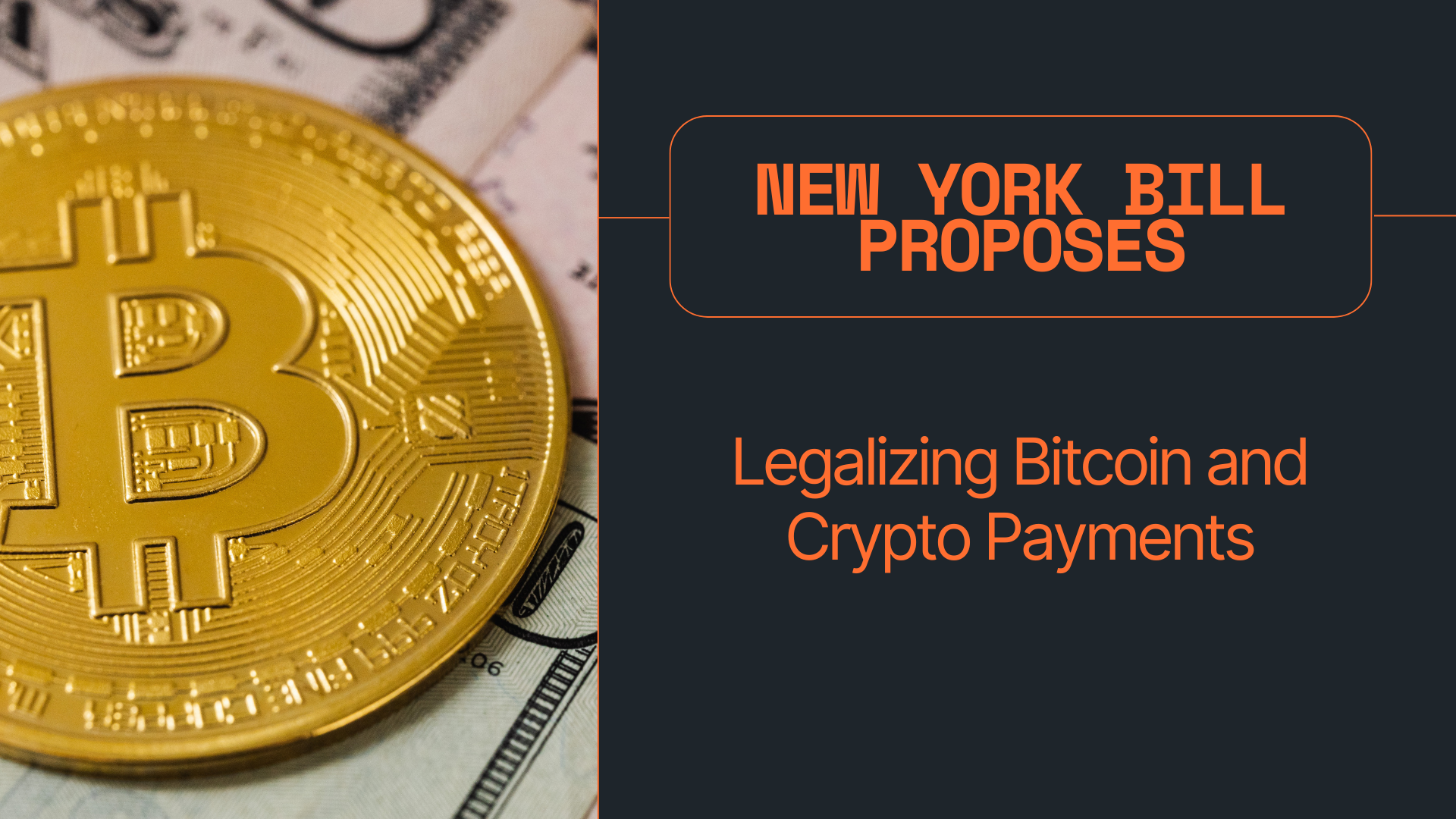
New York State is poised to take a significant step toward mainstream cryptocurrency adoption with a proposed bill that would legalize Bitcoin and crypto payments for businesses. Introduced by state lawmakers, the legislation aims to establish clear guidelines for accepting digital assets while addressing consumer protection concerns. If passed, New York could become one of the first major U.S. jurisdictions to formalize crypto as a recognized payment method, setting a precedent for other states.
Key Provisions of the New York Crypto Payment Bill
The bill, S.8642/A.10042, requires businesses to disclose terms and conditions to customers before accepting crypto payments. These disclosures must include:
- Risk warnings about cryptocurrency volatility and irreversible transactions;
- Fees and conversion methods (e.g., whether payments will be immediately converted to fiat or held as crypto);
- Insurance and security measures to protect against cyberattacks or asset loss.
Additionally, businesses would be obligated to comply with anti-money laundering (AML) and know-your-customer (KYC) regulations, aligning with federal standards. The bill also mandates that merchants treat crypto payments like cash, meaning they cannot discriminate against customers who choose to pay with digital assets.
Why New York’s Move Matters
New York’s financial influence makes this bill a critical test case for U.S. crypto regulation. As the home of Wall Street and a hub for fintech innovation, the state’s actions could accelerate national adoption of crypto payments.
Supporters argue the bill:
- Encourages financial innovation by fostering a regulated environment for startups and traditional businesses alike.
- Empowers consumers with more payment options, especially in industries like retail, real estate, and online services.
- Competes with crypto-friendly regions like El Salvador and countries in the Caribbean, where Bitcoin is already legal tender.
Comparison with Other States and Global Initiatives
While New York’s bill stops short of declaring crypto legal tender (as El Salvador did), its approach aligns with emerging frameworks in other U.S. states:
- Wyoming: Since 2021, Wyoming has passed laws recognizing crypto as legal money, exempting it from certain sales taxes, and enabling self-sovereign digital wallets.
- Texas: In 2023, Texas legislators proposed a bill to allow crypto as payment, though it later stalled.
- California: While not yet passing similar legislation, California’s regulators have been more crypto-friendly compared to New York’s historically strict stance.
Globally, countries like Panama, Ukraine, and Kazakhstan have also moved to legitimize crypto payments, signaling a growing shift toward digital assets as legitimate financial tools.
Challenges and Opposition
Despite its potential benefits, the bill faces hurdles:
- Regulatory Concerns: Critics argue that crypto’s volatility and lack of central bank backing make it risky for everyday transactions.
- Consumer Protection Risks: Opponents highlight the potential for fraud, especially in unregulated markets.
- Political Pushback: Some lawmakers and traditional financial institutions fear crypto’s disruption to the fiat-based economy.
Industry Reactions
- Supporters, including crypto advocates like Michael Saylor (Founder of MicroStrategy), praise the bill for “bringing clarity and legitimacy.”
- Financial Analysts note that New York’s move could pressure the Federal Reserve to address crypto’s role in the broader economy.
- Business Groups such as the New York Blockchain Association have lobbied for the bill, emphasizing its potential to boost innovation and competitiveness.
Impact on Businesses and Consumers
If enacted, the bill could transform how New Yorkers transact:
- For Businesses: Merchants would gain access to a new customer base, particularly younger, tech-savvy demographics. However, compliance costs (e.g., insurance, AML systems) may deter smaller companies.
- For Consumers: Shoppers could use crypto to bypass high credit card fees or hedge against inflation.
Comparison with Competing Regimes
The proposed New York framework contrasts with other regulatory models:
| Jurisdiction | Crypto Status | Key Regulations |
| El Salvador | Legal tender | No mandatory fiat conversion |
| Wyoming | Legal payment | Tax exemptions, wallet rights |
| New York | Legal but regulated | Mandatory disclosures, AML compliance |
What’s Next for the Bill?
The bill is currently in the committee review stage and faces debates over its scope and enforcement mechanisms. Advocates hope it will pass by mid-2024, but delays are possible due to political disagreements.
Broader Implications for the US Crypto Landscape
New York’s initiative could spark a wave of similar laws across the U.S., potentially influencing federal policy. The SEC’s stance on crypto regulation and ongoing debates over Bitcoin’s status as a commodity or currency will also shape the outcome.
Conclusion: A Turning Point for Crypto in the US
New York’s proposed bill marks a pivotal moment for cryptocurrency’s mainstream acceptance in the U.S. While challenges remain, the legislation could unlock new opportunities for businesses and consumers, positioning the state—and the country—as leaders in the global crypto economy. As debates continue, one thing is clear: the push to legitimize digital assets is gaining momentum, and New York’s move may just be the first domino to fall.